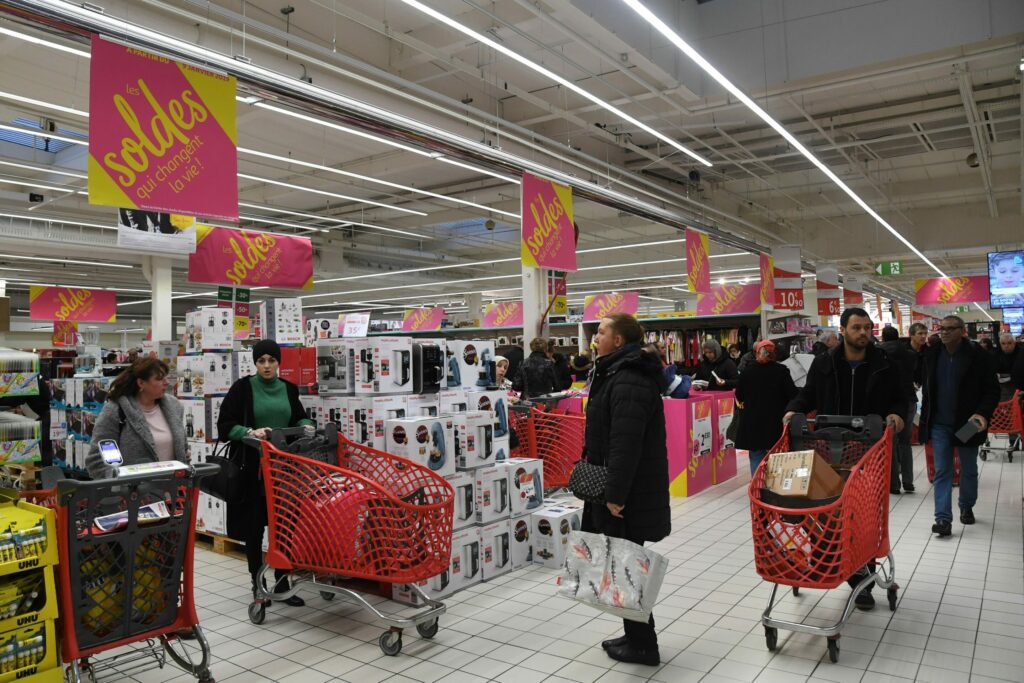2023 was a difficult year for retail, not only for non-essential items but also in the food industry as Europe groaned under the weight of the energy crisis and the inflation it incurred. But Belgium was especially affected last year, with latest analysis by Eurostat revealing that it saw the largest drop in the quantity of food purchased in the EU.
Whilst food retailers across the continent registered a dip, in Belgium the slump was far more pronounced – especially considering the relatively small reductions seen in neighbouring countries. Overall, the EU's statistics office noted a 6.3% contraction in total products sold. In fact, only Estonia and Hungary saw comparable drops.
The findings detail specifically the total quantity of products bought, rather than the revenue generated from them, L'Echo notes. Nonetheless, the results have stoked fears that retailers in Belgium are losing out to competitors over the border, a concern that was raised on numerous occasions in the past year.
The national federation for food commerce and services, Comeos, had already sounded the alarm about cross-border shopping. They argued that a higher VAT in Belgium had driven shoppers abroad, stating that "The difference between the price of a Belgian shopping cart and that of a French shopping cart is already very visible."
Compared to Belgium's 6.3% reduction, France recorded a 1.6% drop and the Netherlands just 1.2%. Across the EU, the average was -2.7%.
Quantity vs. revenue
Curiously, the drop in number of products sold did not translate into an overall loss of revenue. On the contrary, food commerce in Belgium saw a 3% rise in sales revenue. Then again, food inflation over the course of the year averaged at 4.65%, suggesting a real-terms loss.
Nowhere else in Europe saw such a difference between the revenue generated and the reduction in products sold. This indicates an overall rise in prices, something that has been noted before and that will harm retailers in the long run. This is especially true given the habitual nature of food shopping: if buyers become accustomed to shopping over the border to benefit from better prices, persuading shoppers to make their purchases on home turf will be a significant challenge.
Related News
- 'Lose-lose': Belgians have never done so much grocery shopping abroad
- Buying groceries abroad: Is it really more budget friendly?
Moreover, Eurostat observed a marked decline in going to physical shops, with a distinct rise in e-commerce. Though supermarkets in Belgium have been less impacted, the effect is a substantial threat to more specialised retailers.
An economist at Comeos told L'Echo that some supermarkets in neighbouring countries that are situated near the Belgian border have seen their sales revenues double. This often starts with going over the border to find cheaper drinks – both alcoholic and soft drinks can cost significantly less in neighbouring countries – and shoppers then do the rest of their shopping at the same time.

